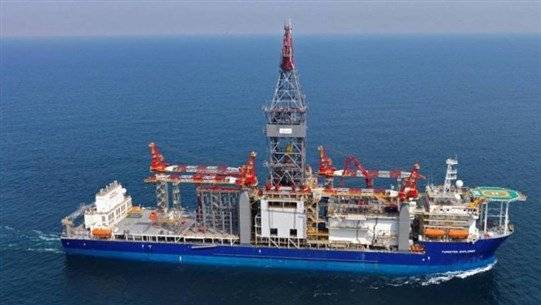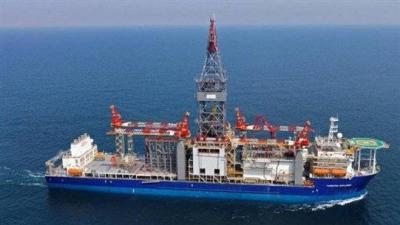Lebanese citizens woke up yesterday to two pieces of news: the first stated that Lebanon received the final version of the American proposal for the maritime border demarcation agreement, and the second concerned the arrival of Romain La Marinière, the Chairman and CEO of Total, in Beirut to meet with Lebanese officials and work on a revised plan for exploration in block 9, which will bring Lebanon back onto the oil map — a condition that was imposed for accepting the demarcation agreement.
In a summary of the key moments in this file, it appears that on February 9, 2018, Lebanon signed contracts for the first time with three international companies: French Total, Italian Eni, and Russian Novatek to explore for oil and gas in two blocks in its territorial waters. Lebanon divided the area expected to contain gas and oil into ten blocks, offering five of them for bidding. The authorities accepted an offer from a consortium among the three companies for blocks 4 and 9. Total's share amounted to 40%, while Eni also received 40% and Novatek received 20%. According to the signed agreement between the Lebanese government and the consortium companies, the state would obtain between 56% and 71% of revenues from block 4, and between 55% and 63% from block 9.
However, Novatek, the second-largest gas producer in Russia, announced its withdrawal from the consortium last August due to conditions arising from U.S. sanctions against Russia. Consequently, Lebanese authorities rushed to inform the company of their acquisition of its 20% share in the exploration and production agreements for blocks 4 and 9.
During 2018 and 2019, the consortium began technical preparations and conducted additional geological and geophysical studies as well as environmental surveys. In October 2019, the consortium submitted a request to the Minister of Energy and Water for a drilling permit in block 4, and in December 2019, the Minister issued a drilling permit for the first well in block 4. In February 2020, the Ministry of Environment approved the environmental impact assessment report. That same month, three service ships arrived at the Port of Beirut to provide logistical support for the drilling rig. All these steps were necessary to begin drilling operations.
However, just a few weeks after this process commenced, it halted. On April 26, 2020, Total E&P announced the completion of drilling the Peblos 16/1 well in block 4 at a depth of 4,076 meters, noting that the well is located off the Lebanese coast about 30 km from Beirut in water depths of around 1,500 meters. They indicated that the well completely crossed the targeted geological layer of the ological-Miocene epoch, and traces of gas were observed, confirming the existence of a hydrocarbon system, although no reservoirs were found in the Tamar formation, which was the primary target of this exploratory well. The consortium was supposed to drill a well in block 9 before May 27, 2021, but did not do so. This represents a clear violation of the contract that requires drilling at least one exploratory well in each block within three years from the government’s approval of the exploration plan (May 2018).
At the beginning of last May, specifically on the fifth, the government decided to extend the contract and exploration deadline by three years, citing difficulties in attracting international companies, despite Total's delays in meeting its commitments. This decision followed a study by the Petroleum Sector Authority and a recommendation issued on April 20, 2022 (number 2/2022) to approve the extension with modifications to the details. After discussing the file in the session and based on the proposal from the Minister of Energy Walid Fayyad, the Cabinet approved the extension of the exploration contract execution period for block 9 by three years (ending May 21, 2025) and for block 4 by one year (ending October 22, 2023).
If Total is serious about returning to Lebanon, it could commence exploratory drilling operations in the Qana prospect within a few months, specifically at the beginning of the upcoming spring, especially since it holds two-dimensional studies that would enable it to start work effectively, according to some experts. They point out that what supports this scenario is the fact that the French company will also begin drilling operations on the Cypriot coast next year, meaning it could utilize the same equipment if it decides to start drilling in block 9. However, they also note that political considerations led to the halt of operations despite the company being serious about moving from block 4 to the south.
Experts caution that the negative scenario could delay the start of exploratory operations until the end of next year, especially if work on the marine base at the port, which was damaged due to the explosion, and the environmental assessment study is delayed.




